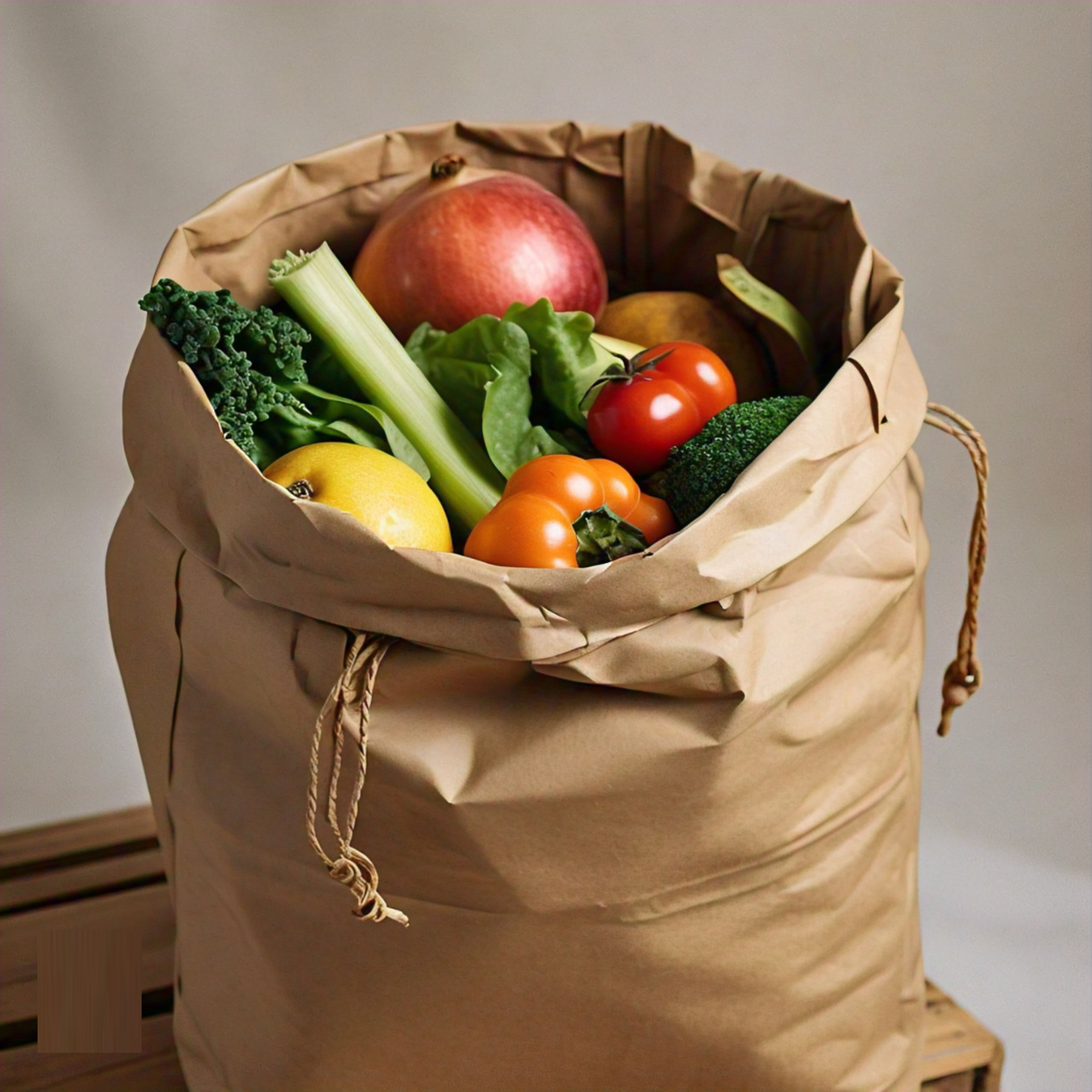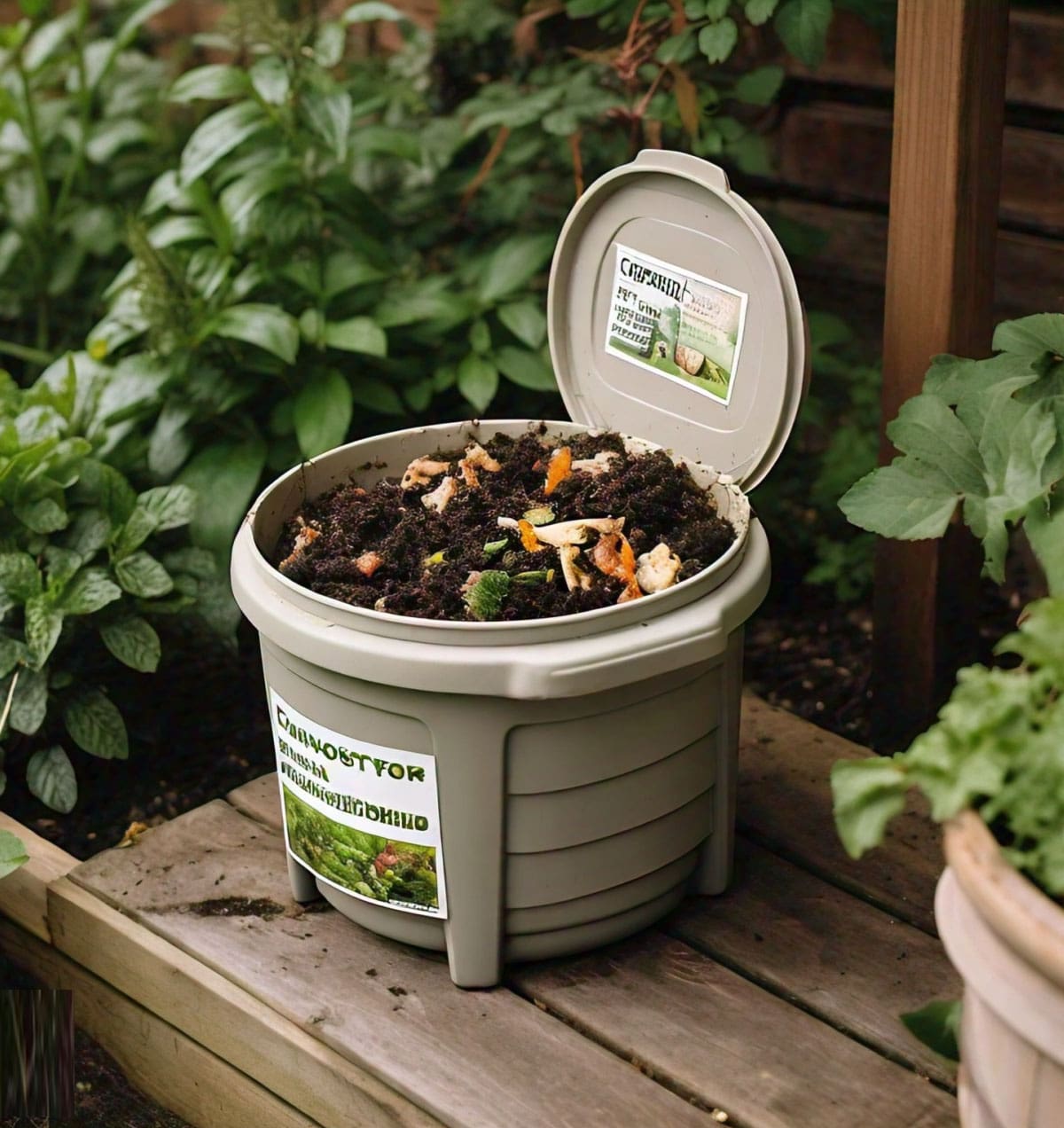Plastic pollution is a major environmental issue, and people are looking for ways to reduce their effect. One of the best and useful answers is switching to compostable bags. These green alternatives to conventional plastic bags are gaining reputation among eco-conscious clients, domestic gardeners, retail agencies, and environment lovers. In this blog post, we’re going to explore what compostable bags are, their advantages, challenges, and a way to use them efficiently for your day by day existence. By the quit, you may be geared up to make the transfer and contribute to a greener planet.
What Are Compostable Bags?
That are designed to break down into non-toxic, and natural elements that are placed in proper composting environment. Unlike traditional plastic bags which could take hundreds of years to decompose, These are made from substances that return to the earth inside remember of months.
Materials: For making of these bags the commonly used materials are cornstarch, polylactic acid (PLA), and other plant-primarily based fibers. These elements are derived from different renewable resources such as potato starch, corn, and sugarcane to make them a sustainable opportunity to petroleum-based totally plastics.
There is too many difference among Compostable, Biodegradable, and Traditional Plastic Bags, and these are as follows.
Compostable Bags: These break down absolutely and turn into compost, these bags do not affect the environment without leaving any poisonous residue.
Biodegradable Bags: In case of biodegradable bags they do break down more quick than conventional plastics, but they may leave small amount of micro-plastics which can harm the surroundings. Traditional Plastic Bags: These can a lot of time or even years to break down and make a significant contribution to plastic pollutants in oceans and on earth.

How Do Compostable Bags Work?
Process of Decomposition: For these bags to break down correctly, they need specific situations which includes warmth, moisture, and microorganisms. These conditions are usually found in composting facilities designed to create an appropriate surroundings for decomposition.
Timeframe: The time it takes for bags to decompose can range depending at the composting conditions. In a well-maintained industrial composting facility, they are able to break down in as little as ninety days. However, domestic composting can also take longer because of decrease temperatures.
Home vs. Industrial Composting
Home Composting: While feasible, domestic composting can be slower because of decrease temperatures and less managed conditions.
Industrial Composting: Provides the ideal environment for quicker break down, which includes better temperatures and higher moisture control.
Oxygen and Moisture Requirements: Proper decomposition of compostable bags calls for adequate oxygen and moisture. Without those, the bags may not break down completely, leading to potential environmental troubles.
Common Misunderstandings: A common misconception is that compostable bags will decompose nicely if thrown within the trash. This isn’t always actual; they need unique conditions to break down efficaciously.
Benefits of Compostable Bags
Environmental Benefits: Switching to compostable bags considerably reduces plastic waste in oceans and landfills. Once decomposed, they leave no toxic residue, making them a more secure alternative for the environment.
Support for a Circular Economy: These bags can be become precious compost which can be used to increase soil fertility when incorporated in to soil. This makes a sustainable loop that helps a circular economy.
Safety for Marine and Wildlife: Compostable bags break down with the passage of time safely in natural environments that reducing the chance to harm the marine and wildlife. Unlike plastic bags, they do no longer degrade into harmful micro-plastics.
Carbon Footprint: Compostable bags have a decrease carbon footprint compared to traditional plastic bags as they are made up of renewable source to reduce the reliance on fossil fuels and lowering overall carbon emissions.
Challenges and Limitations
Proper Disposal Required: These bags do not decompose in landfills without the right conditions. They require a special composting facilities to be eliminated to confirm the proper decompositions.
Higher Cost: One of the principle drawbacks is the higher price of compostable bags as compared to everyday plastic bags. However, the lengthy-time period environmental blessings regularly outweigh the preliminary price.
Limited Availability: In a few areas, compostable bags may not be without problems to be had, and the dearth of composting infrastructure can restrict their effectiveness.
Confusion among Consumers: There is frequently confusion among biodegradable and compostable merchandise. It’s crucial to educate clients at the variations to make certain right disposal.
Decomposition Challenges: If positioned within the incorrect surroundings, which include bloodless or dry regions, compostable bags won’t damage down properly, main to capability environmental problems.
Choosing the Right Size and Strength:
Consider the bag’s cause, whether or not it is for trash, groceries, or meals garage. Evaluate the bag’s electricity and durability based totally in your needs to ensure it can deal with the supposed use.
Brands and Recommendations: Several famous, sincere brands offer certified compostable bags. Some green stores and systems focus on selling these merchandise, making it less complicated for clients to make the transfer.

Proper Use and Disposal of Compostable Bags
Correct Disposal Methods: These bags should be disposed of in compost bins or taken to business composting facilities. This ensures that they decompose well and contribute to a fit environment.
Tips for Home Composting: Add the compostable bags into your personal home composting tool via shredding them into smaller pieces to boost up their decomposition. Be mindful of what sorts of waste can be blanketed; keep away from gadgets that can contaminate the compost.
Avoiding Common Mistakes: Don’t blend compostable bags with traditional plastic or recyclable substances. This can contaminate the compost and avoid the decomposition process.
Contamination Prevention: Ensure that simplest items are located in the these bags to prevent contamination. Non-compostable objects like plastics and metals can disrupt the composting process.
Impact at the Environment
Reduction in Plastic Waste: Using these bags can considerably lessen plastic waste globally. Many case research and records show the positive effect of switching to compostable options.
Contribution to Healthier Soil: Compost made out of these bags enriches the soil, supporting sustainable agriculture and improving plant boom.
Impact on Marine Life: Compostable bags assist lessen ocean pollution via breaking down appropriately in herbal environments, protective marine existence from the harmful consequences of plastic.
Comparing Plastic Bag Bans: Several towns and countries have applied bans on plastic bags and promoted compostable options. These tasks have led to extensive reductions in plastic waste and environmental pollutants.
The Future of Compostable Bags:
Innovations: New technologies and substances are being developed to improve compostable bags. Innovations like bags that destroy down in water or are crafted from food waste are at the horizon, promising even extra sustainable alternatives.
Government Policies: Current and upcoming authorities rule are selling the usage of compostable bag over conventional plastic bag. These guidelines intention to lessen plastic pollution and inspire sustainable practices.
Market Growth: The demand for compostable bags is developing in various regions and industries, including food carrier and retail. Data indicates an increasing trend in the direction of adopting green options.
Global Impact: Compostable bags make contributions to global efforts to lessen waste and plastic pollutants. By making the switch, purchasers and businesses can play a significant position in protective the environment for destiny generations.

Conclusion:
Compostable bags provide a sustainable alternative to traditional plastic bags, supplying numerous environmental benefits. While they arrive with demanding situations, right use and disposal can maximize their effectiveness. By selecting compostable bags, you can contribute to a greener planet and help a circular economy. Start using compostable bags these days and make a high-quality impact on the environment. Explore the options available on line and discover composting centers on your nearby place to start your sustainable journey.
FAQs:
What’s the difference between compostable and biodegradable bags?
Compostable bags break down absolutely into herbal factors, even as biodegradable bags may also depart at the back of micro-plastics that harm the environment.
Are compostable bags suitable for domestic composting?
Yes, but domestic composting might also take longer due to decrease temperatures. Shredding the bags into smaller portions can assist accelerate technique.
Do compostable bags work within the equal manner as plastic bags for garage or trash?
Yes, compostable bags may be used for storage or trash, however they must be disposed of properly in composting facilities to make sure they wreck down efficaciously.
Can compostable bags be used for food storage?
Yes, many compostable bags are appropriate for food storage, however it’s vital to test the producer’s guidelines for specific use cases.
Are there any downsides to compostable bags? The important downsides are higher cost and restrained availability in a few regions. Proper disposal is also important to ensure they spoil down effectively.




